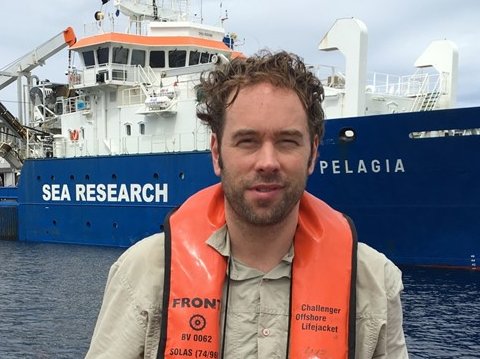How coral reefs are affected by pollution
We know that coral reefs worldwide are in decline, but remarkably little is known about how exactly this happens. That is why a multidisciplinary team of Dutch and Caribbean researchers, including TU Delft’s Boris van Breukelen, will investigate this in the coming years. The project ‘SEALINK’ was recently awarded 3,5 million euros of funding as part of the Caribbean Research programme of the Dutch Research Council (NWO).
For the first time, Dutch and Caribbean scientists are looking at how the coral reefs are affected by pollution such as sewage water and chemicals that flow from land into the sea. The team will focus on Curaçao and St. Eustatius. Little is known on how exactly pollutants reach the sea from these islands, how subsequently water motion and marine organisms move and change these substances, and the overall impact that land-based pollution has on the coral reef ecosystem. This knowledge is crucial for the preservation of coral reefs and biodiversity as well as for tourism and local communities in the Caribbean part of the Kingdom of the Netherlands.
Boris van Breukelen (Department of Water Management) will lead the work package on the hydro(geo)logy to understand precisely how pollutants (including nutrients, fertilizer, sediments, organic compounds, pathogens) are transported into the sea (overland or underground, or both) to ultimately support effective land and water (including sanitary) management. Van Breukelen and Victor Bense (WUR) will together supervise two PhD students who will combine extensive field work, novel water tracing methods, and numerical water and pollutant transport modelling.
The consortium
The consortium consists of hydro(geo)logists, oceanographers, marine ecologists and social scientists of the following universities: University of Amsterdam, NIOZ, TU Delft, Wageningen University, VU University and Utrecht University. Programme Chair: Prof dr Mark Vermeij (University of Amsterdam, CARMABI Curaçao).
More information
The objective of the Caribbean Research programmes is to structurally strengthen the knowledge system and the embedding of scientific research in the Caribbean part of the Kingdom of the Netherlands. The programme focusses on issues that are of great societal and scientific importance for the Caribbean region, and facilitate the transfer of knowledge via education and outreach. This is the first time that the Dutch Research Council has funded programmes of this size in the Dutch Caribbean. More information is available on the website of NWO.
